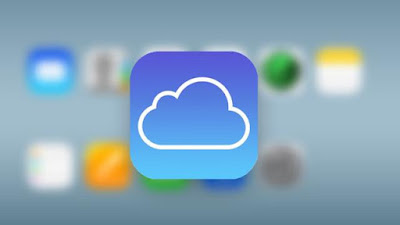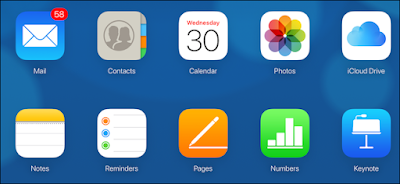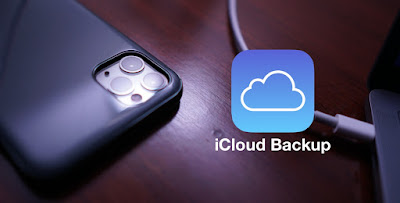iCloud For Windows/Mac/iOS Review
iCloud For Windows/Mac/iOS Review - Tag: iCloud mail, iCloud for Mac, iCloud for iOS, iCloud drive, iCloud for Windows, iCloud backup, iCloud Download, iCloud storage plans, iCloud photos, iCloud login, iCloud app, iCloud app for windows, iCloud access, iCloud app-specific password, iCloud account breached, iCloud storage, iCloud messages, iCloud backup mac, iCloud backup iPhone, iCloud contacts, iCloud calendar, iCloud customer service, iCloud change password, iCloud control panel, iCloud download, iCloud desktop, iCloud documents, iCloud devices, iCloud email address, iCloud email settings, iCloud extra storage, iCloud emails, iCloud for windows 10, iCloud find iPhone, iCloud family sharing, iCloud forgot password, iCloud help, iCloud how to access, iCloud iMessage, iCloud iPhone. iCloud For Windows/Mac/iOS Review

Apple's iCloud administration has got some genuine rivalry as Amazon's new boundless distributed storage plan. Offering boundless capacity of everything for a $59.99 yearly subsription - or $11.99 for just photographs - this arrangement is practically the best arrangement going for those that need to store a lot of information in the cloud.
Those utilizing iCloud for work may likewise be keen on Dropbox's new contribution, which reinforces its administrations with an undertaking grade business bundle. Extended highlights combined with Dropbox's now authentic notoriety for multi-stage application backing could make it a silver slug for some cloud clients.
iCloud For Windows/Mac/iOS Review
What's more, in case you're stressed over the security of your iCloud data, why not look at our main 5 hints for iCloud information wellbeing? Apple's iCloud administration has quickly transformed since its presentation in 2011. Supplanting its prior MobileMe administration, iCloud initially went about as an information synchronizing center point for messages, schedules, notes, updates photographs and iWork records.
While those highlights despite everything remain, it has needed to change so as to contend with distributed storage administrations, for example, Dropbox and OneDrive. As such it has increased a portion of the highlights all the more promptly connected with distributed storage, for example, the capacity to spare documents in organizers that will match up to an assortment of gadgets.
As you would anticipate from Apple, availability is significantly more constrained when contrasted with rivals. On the off chance that you drink the Cupertino Kool-Aid, at that point you can get to iCloud from basically all iOS and OS X gadgets.
On the off chance that you have the most recent adaptation of OS X (Yosemite) and an Apple ID at that point, as it so happens, you will have the option to get to an envelope on the hard drive where information is put away and where you can likewise spare records and organizers for access from different iOS gadgets. You'll need to turn on iCloud from the System Preferences area of the Apple menu, however this is sufficiently direct.
iCloud For Windows/Mac/iOS Review
An iPad or iPhone connected by a similar Apple ID will likewise approach this stockpiling; this is the manner by which information is shared among all gadgets. For Windows clients, iCloud can be downloaded from the Apple site and set up on a PC. Likewise with the Mac, iCloud appears as an envelope that clients can adjust information with.
For iOS gadgets, things get somewhat more confused. There is no iCloud Drive application as it were - the administration stays inside Apple's own applications, just as outsider programming. In settings, iCloud Drive can be enacted and clients can flip which applications can utilize the administration. iCloud Drive isn't accessible for Android gadget or Linux PCs. Nonetheless, there is availability through the iCloud site. Various outsider applications can likewise be found with a fast web search.
iCloud For Windows/Mac/iOS Features:
- Find My. Set up Find My on your iPhone, iPad, or iPod touch. Then you can use it to find friends or a missing device, or share your location with family.
- Back up or restore. If you back up your iPhone, iPad, or iPod touch, you’ll have a copy of your information to use just in case your device is ever replaced, lost, or gets damaged.
- iCloud Drive. securely stores your files so you can access and share them in the Files app on your iPhone and iPad, from Finder on your Mac, and iCloud for Windows on your PC.
- Reminders. With the Reminders app on iOS 13 and iPadOS, you can create reminders with subtasks and attachments, and set alerts based on time and location. You can even get an alert when you're messaging someone.
- iCloud Calendar. Stay up to date with holidays, sports, social media, and more with calendar subscriptions. And see your plans across all of your devices.
- iCloud Contacts. Manage your contacts from your Mac or PC on iCloud.com. They’ll update automatically on all of your devices.
- Notes with iCloud. Use Notes to capture a quick thought, create checklists, sketch ideas, and more. And with iCloud, you can keep your notes updated across all your devices.

iCloud For Windows/Mac/iOS Info:
Manage your iCloud storage. Need more iCloud storage? You can easily make space or buy more storage. When you set up iCloud, you automatically get 5GB of storage. You can use that space for your iCloud backups, to keep your photos and videos stored in iCloud Photos, and your documents up to date in iCloud Drive. You can make more space or buy more storage any time.
See how much iCloud storage you're using:
On your iPhone, iPad, or iPod touch, go to Settings > [your name] > iCloud. To see more detailed information about how apps and services are using your storage, tap iCloud Storage or Manage Storage.
On your Mac, go to Apple menu > System Preferences > Apple ID > iCloud. To see more detailed information about how apps and services are using your storage, click Manage.
On your PC, open iCloud for Windows.
On a supported browser, sign in to iCloud.com, then click Account Settings.
Your iCloud storage is different from the storage capacity that comes with your device. Learn the difference between storage on your device and in iCloud.
Manage your iCloud Backup. When you back up your iPhone, iPad, or iPod touch to iCloud, the most important information on your device is backed up automatically. Backups can include your documents, photos, and videos. Learn more about what iCloud backs up. Many iOS apps automatically back up to iCloud after you install them. You can decrease the size of your iCloud Backup and free up space in iCloud when you turn off backups for apps that you're not using or delete old iCloud backups.
Choose which apps to back up on your iPhone, iPad, or iPod touch:
- Go to Settings > [your name] > iCloud.
- Tap Manage Storage > Backups.
- Tap the name of the device that you're using.
- Under Choose Data to Back Up, turn off any apps that you don't want to back up.
- Choose Turn Off & Delete.
When you confirm that you want to Turn Off & Delete an app, it turns off iCloud Backup for that app and removes all of its information from iCloud. Some apps are always backed up and you can't turn them off.

iCloud For Windows/Mac/iOS Link Download:
iCloud For Windows Information:
With iCloud for Windows, you’ll have your photos, videos, mail, calendar, files, and other important information stored in iCloud and on your Windows PC.
System Requirements:
Your device must meet all minimum requirements to open this product
OS Windows 10 version 18362.145 or higher
Architecture x86
iCloud For Mac Information:
system requirements
iCloud1 requires an Apple ID, an active Internet connection, and up to date software. If you meet the recommended system requirements below, you can take advantage of the latest iCloud features and get the best overall experience. To see the minimum requirements for each feature, you can review the minimum requirements at the bottom of this page.
macOS Catalina
Safari 9.1 or later, Firefox 45 or later, Google Chrome 54 or later, or Opera
iWork for Mac (Pages 5.5 or later, Numbers 3.5 or later, Keynote 6.5 or later).
iCloud For iOS Information:
system requirements
iCloud1 requires an Apple ID, an active Internet connection, and up to date software. If you meet the recommended system requirements below, you can take advantage of the latest iCloud features and get the best overall experience. To see the minimum requirements for each feature, you can review the minimum requirements at the bottom of this page.
iPhone, iPad, and iPod touch
iOS 13 or iPadOS
iWork for iOS (Pages 2.5 or later, Numbers 2.5 or later, Keynote 2.5 or later).
0 Response to "iCloud For Windows/Mac/iOS Review"
Post a Comment